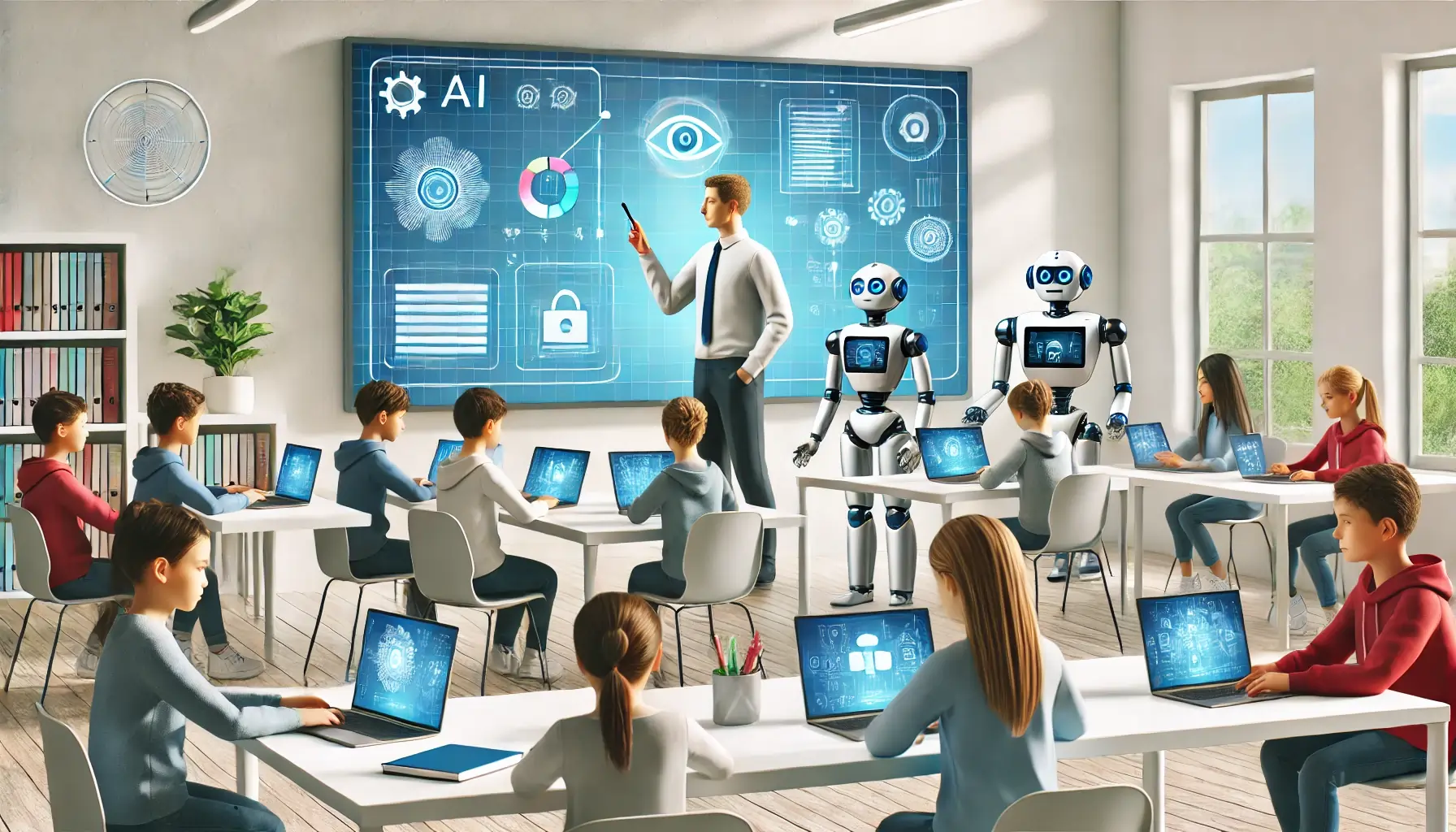Artificial Intelligence (AI) is rapidly transforming various sectors, including education. Integrating AI in schools has sparked debates among educators, parents, and policymakers. While AI offers numerous benefits such as personalized learning and administrative efficiency, it also poses challenges related to data privacy and the potential loss of human touch in teaching. This article explores the pros and cons of AI in schools, providing a balanced perspective on its impact.
For more blogs like this please visit: sleeping sirens
Pros of AI in Schools
1. Personalized Learning
AI-powered systems can tailor educational content to meet the individual needs of students. These systems analyze students’ performance and learning styles to deliver customized lessons, ensuring that each student progresses at their own pace. This personalized approach can enhance understanding and retention of information.
2. Administrative Efficiency
AI can automate various administrative tasks such as grading, attendance tracking, and scheduling. This reduces the workload on teachers, allowing them to focus more on instruction and student engagement. For instance, automated grading systems provide instant feedback on assignments, helping students understand their mistakes and improve.
3. Access to Resources
AI facilitates access to a vast array of educational resources. Intelligent tutoring systems, virtual labs, and interactive simulations are some examples where AI can enrich the learning experience. These resources can be especially beneficial in remote or underserved areas where access to quality education is limited.
4. Data-Driven Insights
AI tools can analyze large datasets to provide insights into student performance and learning trends. Educators can use this data to identify areas where students struggle and adjust their teaching methods accordingly. This data-driven approach can lead to more effective teaching strategies and improved student outcomes.
5. Special Education Support
AI can play a crucial role in special education by providing personalized support to students with learning disabilities. Adaptive learning technologies can adjust content to suit the needs of these students, making education more inclusive and accessible.
Cons of AI in Schools
1. Data Privacy Concerns
The use of AI in schools involves the collection and analysis of vast amounts of student data. This raises concerns about data privacy and security. Ensuring that sensitive information is protected and used ethically is a significant challenge for educational institutions.
2. Dependence on Technology
Excessive reliance on AI and technology can lead to a decline in traditional teaching methods and interpersonal skills. The human touch in education, which includes empathy, encouragement, and moral guidance, cannot be fully replicated by AI.
3. Cost and Accessibility
Implementing AI solutions in schools can be expensive. Not all educational institutions have the financial resources to invest in advanced AI technologies. This can create disparities in the quality of education between well-funded schools and those with limited budgets.
4. Job Displacement
The automation of administrative and teaching tasks can lead to job displacement among educators and support staff. While AI can handle routine tasks, the potential loss of jobs is a concern that needs to be addressed through appropriate policies and retraining programs.
5. Ethical and Bias Issues
AI systems are only as good as the data they are trained on. If the data contains biases, the AI can perpetuate these biases, leading to unfair treatment of certain student groups. Ensuring fairness and transparency in AI algorithms is crucial to prevent such issues.
Final Thoughts
The integration of AI in schools presents both opportunities and challenges. While AI can enhance personalized learning, administrative efficiency, and access to educational resources, it also raises concerns about data privacy, cost, and the potential loss of human elements in teaching. Balancing the pros and cons of AI in education is essential to harness its benefits while mitigating its drawbacks. As AI continues to evolve, it is crucial for educators, policymakers, and technology developers to collaborate and ensure that AI implementation in schools is ethical, inclusive, and beneficial for all students.
FAQs
1. How can AI personalize learning in schools?
AI can personalize learning by analyzing students’ performance and learning styles to deliver customized lessons, ensuring that each student progresses at their own pace.
2. What are the data privacy concerns associated with AI in schools?
AI in schools involves collecting and analyzing large amounts of student data, raising concerns about data privacy and security. Ensuring that sensitive information is protected and used ethically is a significant challenge.
3. How can AI support special education?
AI can provide personalized support to students with learning disabilities through adaptive learning technologies, making education more inclusive and accessible.
4. What are the cost implications of implementing AI in schools?
Implementing AI solutions can be expensive, and not all schools have the financial resources to invest in advanced AI technologies, leading to disparities in education quality.
5. How can AI impact jobs in education?
The automation of administrative and teaching tasks by AI can lead to job displacement among educators and support staff, necessitating appropriate policies and retraining programs to address this issue.
For more blogs like this please visit: sleeping sirens
More about using AI in Schools visit: click here…

